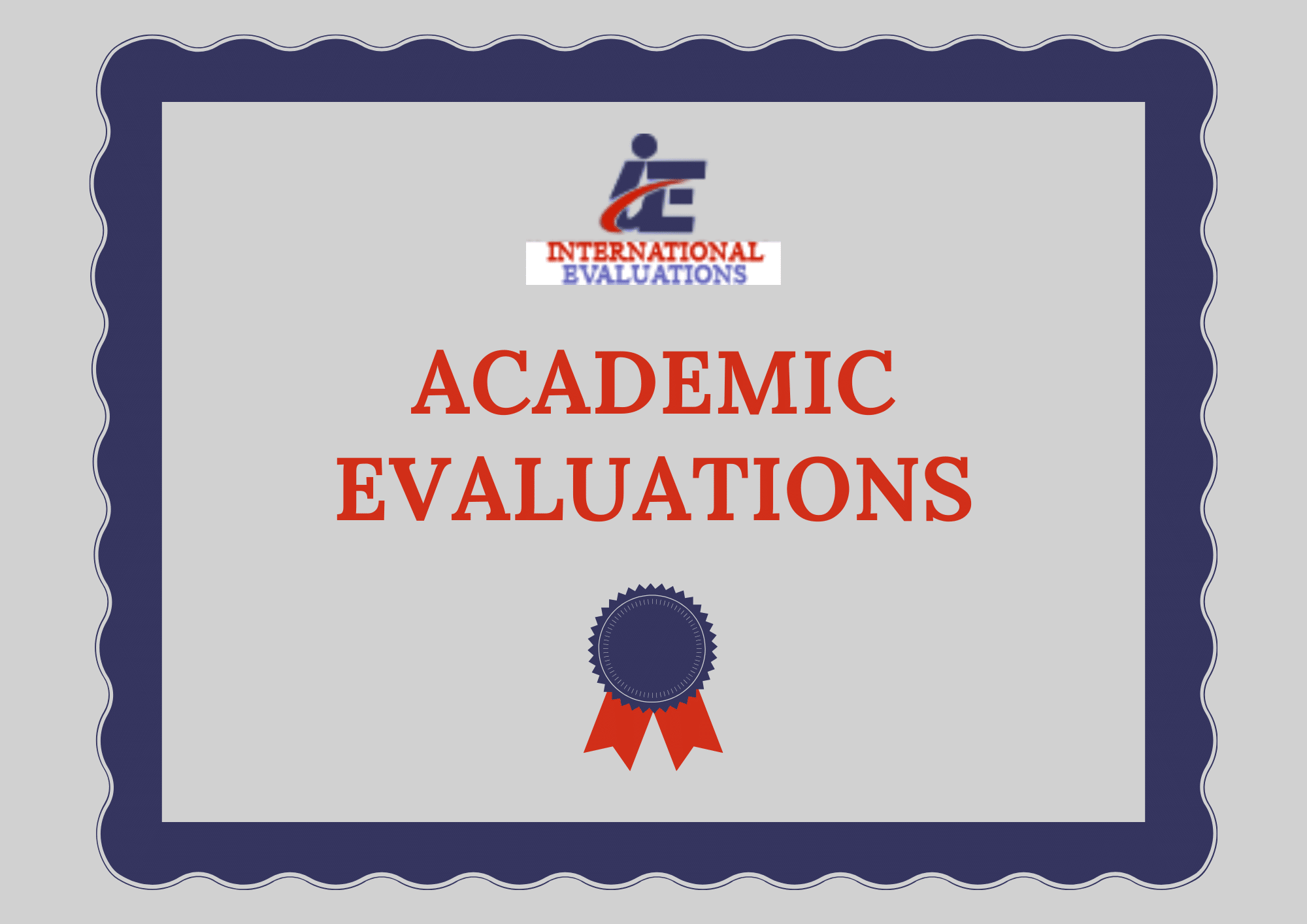Introduction
In an increasingly interconnected world, instructional credentials gotten in one nation frequently need to be evaluated for their equivalence in another. This is particularly true for international trainees seeking to study or work abroad. The procedure of course-by-course examinations acts as an important tool in this regard, helping to bridge educational spaces and facilitate international integration. By offering in-depth evaluations of academic credentials, these assessments allow people to equate their certifications into formats recognized worldwide.
What is Academic Credential Evaluation?
Academic credential evaluation describes the methodical procedure of examining and comparing academic credentials earned in one country versus https://messiahkxqe766.theglensecret.com/a-new-lens-on-education-course-by-course-credential-evaluations-explained those in another. The primary objective is to determine the equivalency of degrees, diplomas, and certificates to ensure that individuals can pursue additional education or job opportunity without hindrance.

Importance of Academic Credential Evaluation
- Facilitates Recognition: Allows institutions and companies to understand the level of education attained by an individual. Promotes Movement: Encourages trainee and expert movement throughout borders by ensuring stakeholders about the validity of foreign qualifications. Enhances Employability: Increases job prospects for people whose credentials are accurately evaluated and recognized.
Understanding International Credential Assessment Services
International credential examination services play a crucial function in the examination procedure. These specialized companies examine foreign educational documents, ensuring they fulfill specific requirements stated by various nations or instructional institutions.
Types of International Credential Evaluations
Course-by-Course Examination:- Provides in-depth analysis per course taken throughout a degree program. Essential for individuals looking for additional education or professional licensure.
- Offers a basic overview of credentials without diving into course specifics. Suitable for many work purposes.
- Assesses professional experience in lieu of formal education. Helps prospects who have considerable work experience but lack formal degrees.
Course-by-Course Credential Examination: A Deep Dive
A course-by-course credential examination meticulously evaluates each course finished during a degree program. It translates the credits made into comparable U.S. credits, making it simpler for American institutions to assess foreign credentials accurately.
Benefits of Course-by-Course Evaluations
- Detailed Insights: Offers comprehensive info about courses taken, grades attained, and credit hours earned. Tailored Assessments: Makes it possible for institutions to make informed decisions based on specific academic backgrounds. Supports More Education: Important for students planning to move or pursue advanced degrees.
How Does Course-by-Course Evaluation Work?
The course-by-course assessment process normally includes a number of key steps:
Document Submission:- Candidates need to send official transcripts and other pertinent documents.
- The evaluating firm validates the authenticity of the files with providing institutions.
- Courses are evaluated based on content, period, and grading systems used in the original institution.
- An authorities assessment report is generated detailing the findings and contrasts made.
Bridging Educational Gaps: How Course-by-Course Evaluations Help With Global Integration
Course-by-course examinations serve as bridges between various educational systems by offering clearness on what foreign qualifications entail. This not only aids trainees however also educational institutions and employers in understanding diverse academic backgrounds.
Creating Opportunities through Transparency
With clear evaluations available, potential trainees can confidently request courses understanding their previous research studies will be recognized properly. Employers can likewise evaluate candidates' educational histories without ambiguity, creating a structured hiring process that values variety while keeping standards.
Expert Viewpoint Letter: When is it Needed?
An expert viewpoint letter might often accompany an academic credential examination report. This document offers additional insight into specific issues that might arise regarding foreign qualifications-- be it uncommon grading systems or unique curricula not easily equivalent to regional standards.
When Ought to One Seek an Expert Viewpoint Letter?
- When looking for specialized programs needing specific accreditation. If there are discrepancies between instructional systems that need extra explanation. For task applications where specific credentials are questioned by prospective employers.
Business Strategy Evaluation in College Contexts
Business strategy assessment might seem unrelated initially glimpse; nevertheless, it's important when thinking about education start-ups or new programs within existing institutions going for worldwide recognition.
Importance of Service Plan Evaluation
Ensures that proposed programs are practical and align with market needs. Involves examining possible cooperations with international partners who may benefit from credential evaluations. Helps protected financing by demonstrating thorough research into market needs and competition analysis.Global Integration Through Standardized Evaluations
Standardization plays a critical role in enhancing global combination through academic credential examinations:
Methods Used:
Developing generally accepted structures for evaluating certifications helps in reducing discrepancies among countries. Collaboration in between countries can result in shared recognition contracts that improve procedures throughout borders. Continuous updates based upon changing instructional landscapes ensure importance over time.FAQs
Q1: What is the typical time taken for a scholastic credential evaluation?
A1: Typically, the procedure takes anywhere from 7 days as much as a number of weeks depending on the complexity and volume of requests received by the assessing organization.
Q2: Are all academic institutions required to accept course-by-course evaluations?
A2: No, approval differs by organization; for that reason it's necessary to consult specific universities concerning their policies on global credential evaluations before applying.
Q3: Can work experience be examined similarly to official education?
A3: Yes! Work experience examinations evaluate professional achievements and abilities gotten through employment which can be useful when official education isn't available.
Q4: Is there a distinction in between document-by-document evaluation and course-by-course evaluation?
A4: Yes! Document-by-document evaluates overall credentials while course-by-course provides in-depth analyses per individual course including grades and credit hours earned.
Q5: How do I pick an appropriate worldwide credential evaluation service?
A5: Search for firms recognized by acknowledged companies such as NACES (National Association of Credential Assessment Solutions) or AICE (Association of International Credential Evaluators).
Q6: What need to I do if my qualifications were denied recognition?
A6: Review your assessment report thoroughly; you may appeal or seek an expert opinion letter if inconsistencies take place due to grading systems or curriculum differences.
Conclusion
Navigating through different educational landscapes can be intimidating; nevertheless, with the aid of course-by-course examinations, individuals can wish for clearer pathways toward achieving their individual objectives-- whether that's participating in a university abroad or protecting a fulfilling task chance worldwide. As we continue cultivating global integration through standardized scholastic practices like these assessments together with needed assistance structures such as professional opinion letters or organization strategy evaluations-- the future looks promisingly accessible!
By welcoming these tools efficiently, we're not simply bridging spaces-- we're building pathways toward understanding that transcend borders while honoring diverse knowing experiences rooted deeply within different cultures around our world today!
